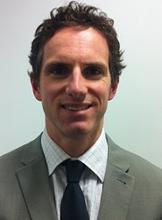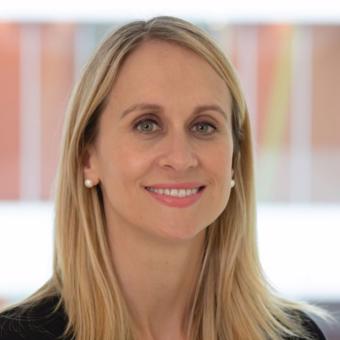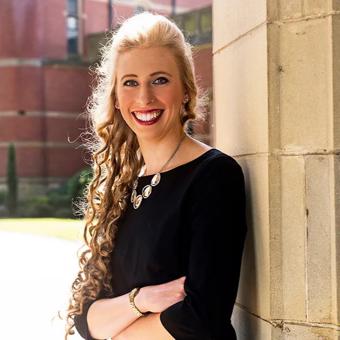Matt Barnes - legal and governance manager at British Cycling – talks about his role, the popularity of the sport and making the move in-house.
Matt, can you tell us a bit about your career before joining British Cycling?
I trained initially at Hammonds (now Squire Patton Boggs) and was lucky to experience a seat in Hammonds’ Sports team, probably helped by the fact that I had competed internationally in the sport of Modern Pentathlon for several years beforehand. However, the Sports team at Hammonds was based in London and being from the North originally, I was keen to pursue a career away from the capital. As a result, upon qualification, I worked in Manchester for both George Davies (now Mills and Reeve) and Brabners for almost 10 years. I was doing mostly work in football, particularly at Brabners, acting for a number of Premier League teams, as well as agents and other sporting organisations.
What are British Cycling’s main objectives?
British Cycling is the governing body for the sport of cycling in Great Britain and so has a wide responsibility for all six disciplines of cycling (road, track, BMX, mountain bike, cyclo cross and cycle speedway.) We provide support and assistance for anyone involved in cycling; from the first timers (both adults and children) to the elite members of the Great Britain Cycling Team who are striving to win World and Olympic or Paralympic medals. We are doing well on both fronts at the moment. At the elite end, Britain was the most successful cycling nation at London 2012 and, just as importantly, we recently broke through the 100,000 members mark, which was a major achievement for our organisation.
How long have you been legal and governance manager at the organisation?
The role became available at the start of this year when my predecessor accepted a position at the UCI, the international cycling federation, based in Switzerland. He had helped manage the successful campaign for Brian Cookson to become the president of the UCI and subsequently accepted a full time role out there. Since I joined, I almost can’t believe myself how many different matters I have been involved with. It has certainly been a challenging time, not least because my wife and I had our first child a month after I started. But it has certainly been very rewarding, both at home and in the office!
What does your role entail on a day to day basis?
I’m sure any in-house lawyer would say that’s an almost impossible question to answer as you just never know what will happen on a day to day basis. However, some of the main areas in which I work include dealing with the contracts with our commercial partners, as well as the many organisations such as local councils and event organisers who we deliver courses, programmes and events with. There has also been a lot to work on with the Great Britain Cycling Team, which I mention below. I also work with the compliance team in a number of areas.
How much cross over is there with the compliance team and what are its specific focuses?
I work closely with the compliance manager and his team on a number of issues; particularly anti-doping, child protection and internal disciplinary issues.
How involved are you with the Great British Cycling team itself?
Very involved. I work closely with the programmes director in matters relating to the Great Britain Cycling Team, such as the drafting and implementation of selection policies. I particularly enjoy working on this aspect of the programme, having participated in sport for so many years myself and knowing what it is like to be involved in an elite programme.
You joined British Cycling from Brabners so what prompted the move in-house?
I had a thoroughly enjoyable time at Brabners and it was a difficult choice to move. However, probably as a result of competing in sport for so many years, I had always fancied a move to a sporting organisation. One of my few frustrations of working in private practice was, after doing a significant job for a company, you often didn’t have any contact with that company for a long period after that, so you never really got to see how your efforts allowed the organisation to progress. Working in-house, you are able to keep that continuity and can see the organisation progress and grow each day.
Given my ties to the North West, there were always going to be very few positions in sport that would attract me but the job at British Cycling was certainly one of those, so when the opportunity came up in January, I jumped at it. Little did I realise that the manager’s job at Manchester United was going to become available in April, so maybe I should have held out for that (on reflection, maybe Mr Van Gaal has got his hands full there…).
What have you found to be the main differences between the two?
As a legal team of one, I have less immediate support to bounce ideas off than when I was working in private practice in a team of a dozen lawyers, who all had a vast array of legal expertise. However, I think taking that added responsibility has been good for my development as a lawyer. The other main difference is having the freedom to get on with my role, without the looming spectre of time recording or the monthly rush to bill clients!
What’s the best thing about your job?
Unquestionably working with people who have a real passion for what they do. Every single person I have come across at British Cycling is driven to ensure that cycling in this country is a success and that makes a real difference to any organisation - when the individuals working within it have such a drive to do the best they can for the business they work in. I’d also be lying if I didn’t say I really enjoy the staff track session on a Wednesday too – although, as you can imagine, there are a few decent riders amongst the employees here, so I try to avoid looking at the results when we do any time trials! I’m normally one of the slowest.
The popularity of cycling has increased massively in the last few years. What role has/ is British Cycling playing in raising the sport’s profile?
British Cycling as an organisation has been instrumental in this success. I think the success of the Great Britain Cycling Team at the last two Olympic and Paralympic Games and the achievements of individuals such as Sir Bradley Wiggins and Chris Froome in The Tour de France has really brought cycling to the attention of the British public. However, what British Cycling has done particularly well, I think, is to capitalise on this success by ensuring that there are now so many opportunities for everyone to get out and ride their bike – whether that be a good club rider looking to get involved in better quality races or a 50 year old lady who hasn’t ridden her bike for 25 years and needs to build up confidence through our women’s programme, Breeze.
Of course, the opportunities for young people are much greater than they were too, from beginners to the most talented, looking to get involved as part of the British Team. There is still more work to be done, but now we have 100,000 members I think that will really help when lobbying government and other stakeholders to do more to get people on bikes.












